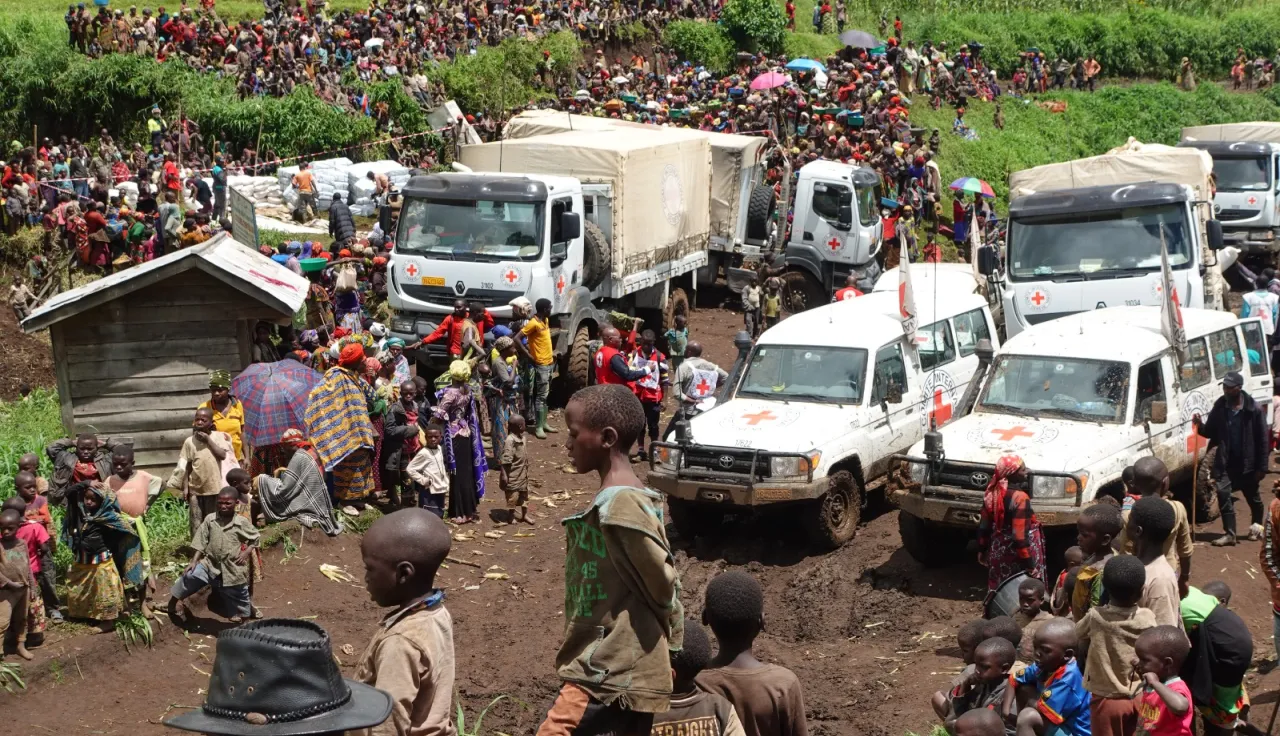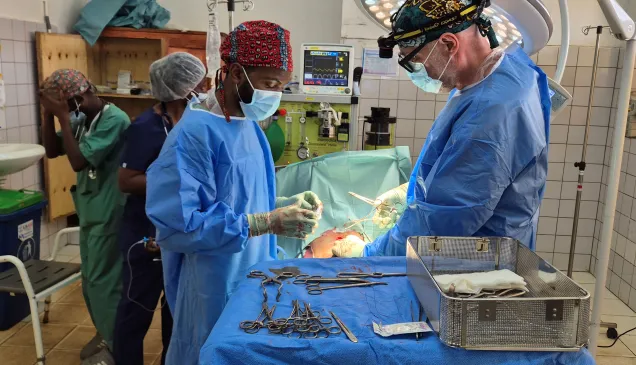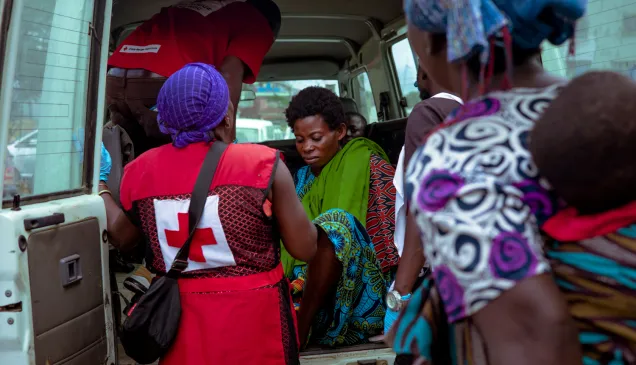Today, exhaustion, anger and desperation are gaining ground in eastern Democratic Republic of the Congo. People are tired of paying the price for the hostilities between the armed group M23 and the country’s armed forces and their allies, the Wazalendo.
Since hostilities resumed in October, more than 450,000 people – twice the population of Geneva – have been forced from their homes in North Kivu, pushing up the total number of displaced people in the country to a record 6.9 million.
Over the past few months, the situation has cycled between periods of fighting and moments of relative calm. Hundreds of thousands of people have crowded into camps but cannot count on having decent living conditions there. Most of the humanitarian assistance being provided is going to these camps, but it is not enough. Certain particularly remote or isolated rural areas remain out of reach and are receiving no or very little assistance, such as in Masisi and Rutshuru territories.
It’s a nightmare for people to be forced from their homes time and again, and logistically extremely complex. Each time people move, the teams of the ICRC and other organizations have to re-assess the obstacles people face to meeting their essential needs and respond accordingly.
Although the ICRC has a well-established dialogue with the various weapon-bearers, the clashes are so numerous and so intense that it leaves little room for humanitarian activities and few opportunities to deliver aid.
In these conditions, misinformation and hate speech are spreading dangerously, including on social media. We fear there is a real danger of the violence spiralling out of control. The effect of this messaging has been, directly and indirectly, to further jeopardize civilian’s safety and dignity. The hate is causing psychological and social harm and casting doubt on the principles of humanitarian work, endangering humanitarian activities.
Sadly, we have seen a significant rise in the number of children being recruited from the communities of Masisi, Rutshuru and Nyiragongo. Adolescent boys are particularly at risk of being recruited, and girls are at risk of sexual violence.
Last week, having obtained the necessary security guarantees, we were, thankfully, once again able to cross the front lines and deliver emergency assistance to the most isolated people, some of whom had not received any assistance since this round of fighting began.
In Bwito, in Rutshuru territory, our teams provided food and tarpaulins to more than 22,000 people. And thanks to donations of medicines and medical supplies, more than 150,000 people, including those who are wounded, will be able to receive treatment in the region’s health centres.
Wherever we go, our work is to support communities in need. It was gratifying to see how happy the people were to see us, and to hear them say “If you’ve come all this way, it means we haven’t been forgotten”.
This was just a first step. Even as people are becoming increasingly desperate, we remain as determined as ever to pursue our dialogue with the parties to the conflict, to ensure that the rules of war are followed. We will work unstintingly alongside the Red Cross Society of the Democratic Republic of the Congo to provide neutral, impartial and independent assistance to those who need it most.
About the ICRC
The International Committee of the Red Cross (ICRC) is a neutral, impartial and independent organization with an exclusively humanitarian mandate that stems from the Geneva Conventions of 1949. It helps people around the world affected by armed conflict and other violence, doing everything it can to protect their lives and dignity and to relieve their suffering, often alongside its Red Cross and Red Crescent partners.
For more information, please contact:
Fatima Sator, ICRC Geneva, tel: +41 79 848 49 08, email: fsator@icrc.org
Halimatou Amadou, ICRC Geneva, tel: +41 79 868 55 83, email: hamadou@icrc.org




